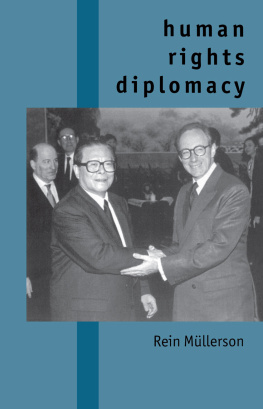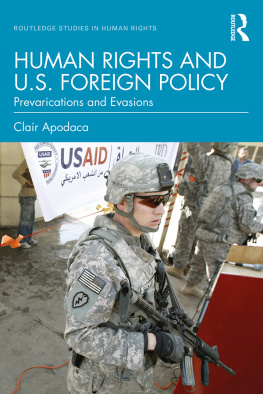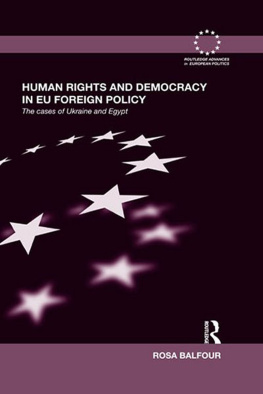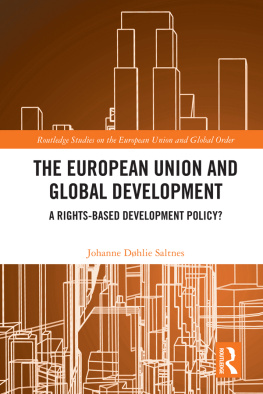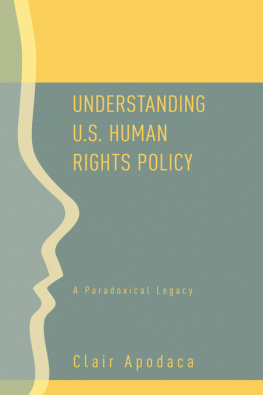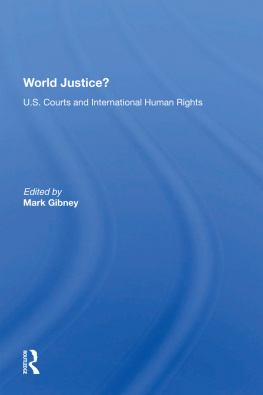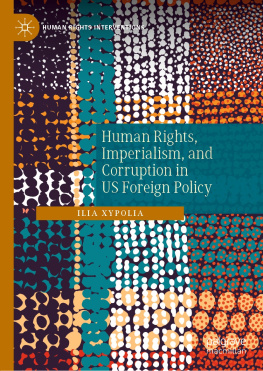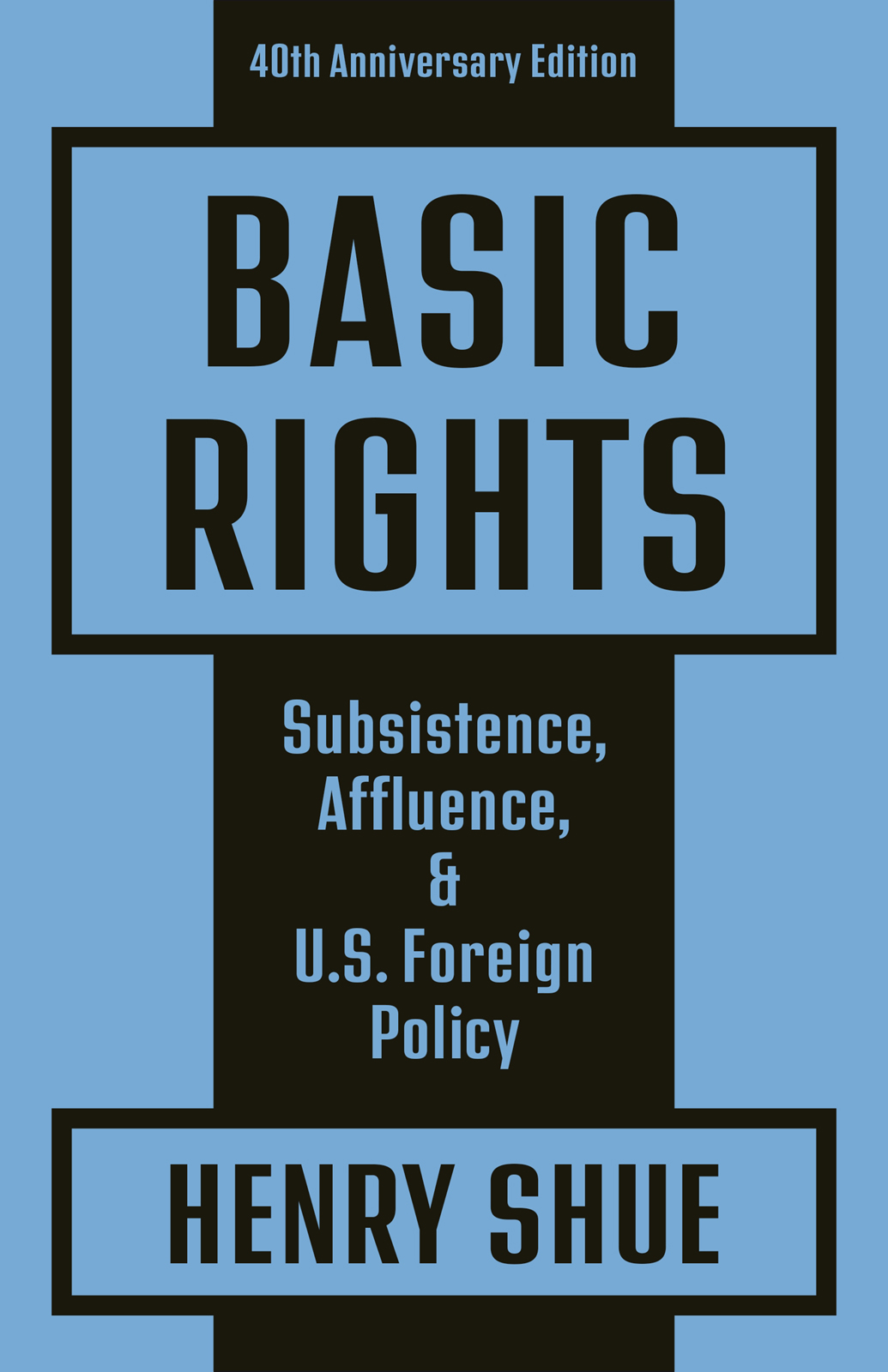
BASIC RIGHTS
BASIC RIGHTS
Subsistence, Affluence, and
U.S. Foreign Policy
40th Anniversary Edition
HENRY SHUE
PRINCETON UNIVERSITY PRESS
PRINCETON AND OXFORD
Copyright 1980 by Princeton University Press
Second edition copyright 1996 by Princeton University Press
New preface and new chapter eight copyright 2020 by
Princeton University Press
Published by Princeton University Press, 41 William Street,
Princeton, New Jersey 08540
In the United Kingdom: Princeton University Press,
6 Oxford Street, Woodstock, Oxfordshire OX20 1TR
All Rights Reserved
First published 1980
Second edition 1996
40th Anniversary Edition 2020
Paperback ISBN 9780691202280
Ebook ISBN 9780691200835
Version 1.0
LCCN 2019953640
British Library Cataloging-in-Publication Data is available
This book has been composed in New Caledonia
press.princeton.edu
Printed in the United States of America
To
SISTER MARIANI C. DIMARANAN, CFIC
Task Force Detainees
of the Philippines,
Quezon City
ATTORNEY YAP THIAM-HIEN, S.H.
Institute for the
Defense of Human Rights,
Jakarta
and
tous les hommes qui, ne pouvant tre des
saints et refusant dadmettre les flaux,
sefforcent cependant dtre des mdecins.
(Albert Camus)
Contents
ix
xi
xiii
Preface to the 40th Anniversary Edition
Charles R. Beitz, Robert E. Goodin, and Simon Caney variously remarked that although I had written about basic rights and had written about climate change, I had not at that point written systematically about basic rights and climate change. In order to streamline the books structure, Right-grounded Duties and the Institutional Turn, which was added in the second edition in 1996 as an afterword, has now been made a seventh chapter but is otherwise unchanged. The original seventh chapter of the first edition was omitted in 1996.
The original foreword has also been omitted, but I would like now to reaffirm the gratitude expressed there to the Ford Foundation and the Rockefeller Brothers Fund for their adventurous support for the fledgling Center for Philosophy and Public Policy of the University of Maryland at College Park, where my work on basic rights began in the late 1970s. My research on climate change, which lies behind the new eighth chapter, began at Cornell University in the early 1990s, at the insistence of the late Duane Chapman and with the assistance of him and Cornells other far-sighted agricultural economists. Since 2002, I have been hosted by the Department of Politics and International Relations of the University of Oxford, enriched by conversation with Oxfords remarkable climate scientists and with fellow theorist Simon Caney, and supported by Merton College, Oxford, my alma mater from the early 1960s.
I am grateful to Rob Tempio of Princeton University Press for conceiving of this edition and patiently awaiting the arrival of the new chapter. Most of all, I delight in the continuing presence of Vivienne, who has been beside me for more than half a century, since years before any of this work began, and who somehow seems ready, if necessary, for even more.
Preface to the Second Edition
This edition includes as an afterword a new essay, Right-grounded Duties and the Institutional Turn, which attempts to take another few steps along one of the paths chosen in the first edition. In order to avoid making the book longer I have omitted the original and still love the concluding quotation from The Plagueeven though the recommendations are no longer at the center of political debate. I omit them without regret, however, because they focus narrowly on the foreign policy of the United States, not on the kind of international institution-building that the afterword advocates. The remainder of the first edition has been left unchanged.
It was my long-time co-conspirator Peter G. Brown who first insisted to me that if one had not spelled out the duties, one had not really spelled out the rights. I hope he will be pleased that while I have not yet adequately dealt with the question he raised now twenty years ago, it is the one I am still working on in this afterword. Onora ONeill, James W. Nickel, and Thomas W. Pogge have done me the honor over the years of taking some of the theses in this book seriously enough to subject them to sustained criticism. This did not seem the place to correct all errors and answer all critics, so I have not taken up many of their points. Yet grateful reflection on their penetrating arguments has often shaped what I have tried to say here. Thomas was also kind enough to critique this afterword for me.
Other debts are more diffuse. During the one glorious year that Jeremy Waldron was my colleague in Ethics & Public Life at Cornell his exuberant friendship and luminous intellect made our Thursday evening dinners thrilling reminders that philosophy at its best is exciting and surprising. Over the decades Robert K. Fullinwider has been loyal friend and philosophical conscience, reminding mesometimes amidst cigarillo smoke or the fumes of burning NASCAR rubberthat our purpose after all was to make the best philosophy practical. I have discussed issues underlying the positions taken in the afterword with them each many times, and I hope and suspect that some of their contagious spirits are here too.
My combination of blindspots and confusions is of course my own unique contribution.
Preface to the First Edition
This is a book about the moral minimumabout the lower limits on tolerable human conduct, individual and institutional. It concerns the least that every person can demand and the least that every person, every government, and every corporation must be made to do. In this respect the bit of theory presented here belongs to one of the bottom corners of the edifice of human values. About the great aspirations and exalted ideals, saintly restraint and heroic fortitude and awesome beauties that enrich life, nothing appears here. They are not denied but simply deferred for other occasions.
This is a book only about where decent life starts. Unfortunately, for well over 1,000,000,000 human beings today the level of existence discussed here probably seems beyond reach, too far above them to be contemplated seriously. This need not be and must not continue. The original motivation for writing about basic rights was anger at lofty-sounding, but cheap and empty, promises of liberty in the absence of the essentials for peoples actually exercising the promised liberty. Especially where I was angry, I have tried to be analytic. In order to lay out the structure of things carefully and clearly, I have modified traditional North Atlantic concepts where they are inadequate for the job. I have thus tried to make some contribution to the gradual evolution of a conception of rights that is not distorted by the blind spots of any one intellectual tradition. That I have my own blind spots goes without saying, and this is one of many reasons why more adequate conceptions of rights can grow only slowly and with the nurturance of many hands.
But a few things about rights are quite clear, and U.S. foreign policy has no excuse for continuing to ignore them while the debates on other points continue. In the faint hope that U.S. foreign policy might someday be brought into touch with global realities, I have concluded with a few of the most obvious implications of basic rights for current U.S. foreign policy.
Next page

